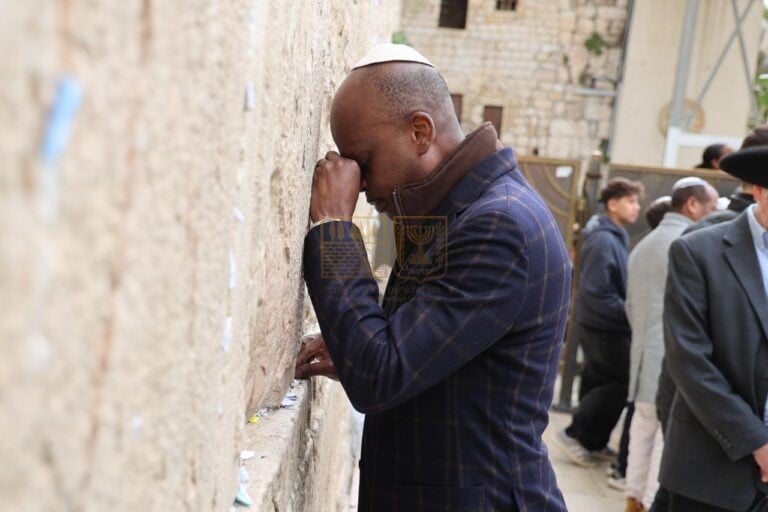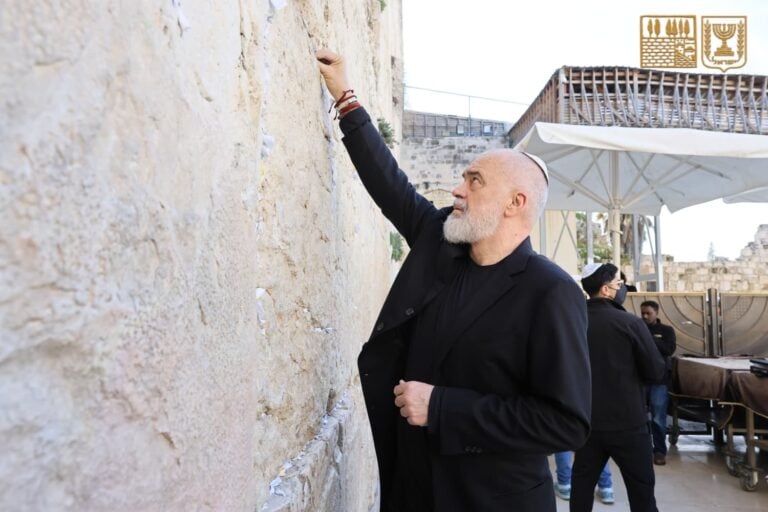Parashat Shoftim – 5785
Rabbi Shmuel Rabinowitz Rabbi of the Western Wall and Holy Sites
In our parasha, the Torah gives the option of appointing a king and leader over the Land of Israel, like the other nations:
“You shall surely set a king over yourself, whom the Lord your G-d shall choose…”
(Deuteronomy 17:14–15)
Chassidic thought explains that the purpose of appointing a king is for the king to instill Torah and mitzvot within the people. Therefore, this mitzvah also applies in our times, in the sense of cleaving to righteous leaders, as reflected in the Mishnaic teaching in Pirkei Avot: “Make for yourself a rabbi.”
The essence of this mitzvah is detailed in the book Derech Mitzvotecha (explanations of the commandments by the Lubavitcher Rebbe, the Tzemach Tzedek):
“The inner intent of this mitzvah is to implant in the people a sense of self-nullification and acceptance of the yoke of Heaven. The king himself is utterly nullified before G-d, and when the people submit to him, it constitutes submission to the kingdom of Heaven.”
Among the dimensions of self-nullification before G-d, there is a central aspect that is expressed in the essence of the king and what distinguishes him from the common people: the king must possess strong self-discipline; he cannot be ruled by negative emotions or personal desires. For this reason, the Torah commands regarding the king:
“Only he shall not accumulate many horses… and he shall not have many wives, lest his heart be led astray; nor shall he greatly increase silver and gold for himself.”
(Deuteronomy 17:16)
The Torah speaks about essentials: horses – the ancient means of transport; women, silver, and gold. The king cannot renounce these entirely, but he must use wisdom and weigh what is necessary and what is already excessive. For whatever is excessive will turn his heart from his purpose and lead him into unnecessary desires and ambitions, whose end is disaster and ruin. Sadly, this is exactly what happened with many kings of Judah and Israel.
In this light, we can understand the surprising story in the Book of Samuel about the appointment of King David, the youngest son of Jesse, who seemed the weakest among his brothers.
When the prophet Samuel arrived at Jesse’s home in Bethlehem, his eyes immediately fell upon Eliav, who was handsome and tall. According to our sages, “there was no blemish in him,” he was perfect in every respect, God-fearing, and great in Torah. Samuel thought this must surely be the one God had chosen as king. But God said to Samuel:
“Do not look at his appearance or his tall stature, for I have rejected him…”
(I Samuel 16:7)
Why did God reject Eliav? The Talmud (Pesachim 66b) explains: until that moment, Eliav was beloved by God, but at the moment he lost his temper, everything changed. This happened when his younger brother David came to the battlefield where Goliath was terrifying Israel. Eliav saw his small, weak brother daring to propose fighting Goliath. He did not believe in David’s strength and angrily lashed out at him:
“And Eliav, his eldest brother, heard when he spoke to the men, and Eliav’s anger burned against David, and he said: Why have you come down here?”
(I Samuel 17:28)
Our sages teach: that single outburst of anger, which erupted from Eliav under pressure in the midst of war, determined his fate.
Eliav, perfect as he was, handsome, strong, and mighty, could no longer be king.
A true leader is one who first and foremost rules over himself and his emotions. A person who can be overtaken by negative emotions cannot serve as a leader.
How true this has proven to be, from the dawn of history until our own day.









